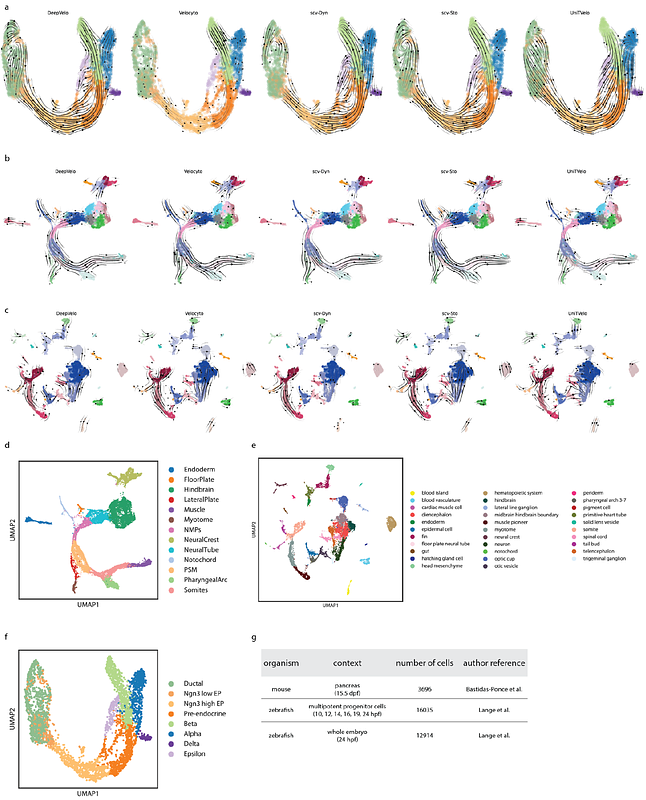Challenges and Progress in RNA Velocity: Comparative Analysis Across Multiple Biological Contexts

Challenges and Progress in RNA Velocity: Comparative Analysis Across Multiple Biological Contexts
Ancheta, S.; Dorman, L.; Le Treut, G.; Gurung, A.; Royer, L. A.; Granados, A.; Lange, M.
AbstractSingle-cell RNA sequencing is revolutionizing our understanding of cell state dynamics, allowing researchers to observe the progression of individual cells\' transcriptomic profiles over time. Among the computational techniques used to predict future cellular states, RNA velocity has emerged as a predominant tool for modeling transcriptional dynamics. RNA velocity leverages the mRNA maturation process to generate velocity vectors that predict the likely future state of a cell, offering insights into cellular differentiation, aging, and disease progression. Although this technique has shown promise across biological fields, the performance accuracy varies depending on the RNA velocity method and dataset. We established a comparative pipeline and analyzed the performance of five RNA velocity methods on three datasets based on local consistency, method agreement, identification of driver genes, and robustness to sequencing depth. This benchmark provides a resource for scientists to understand the strengths and limitations of different RNA velocity methods.


